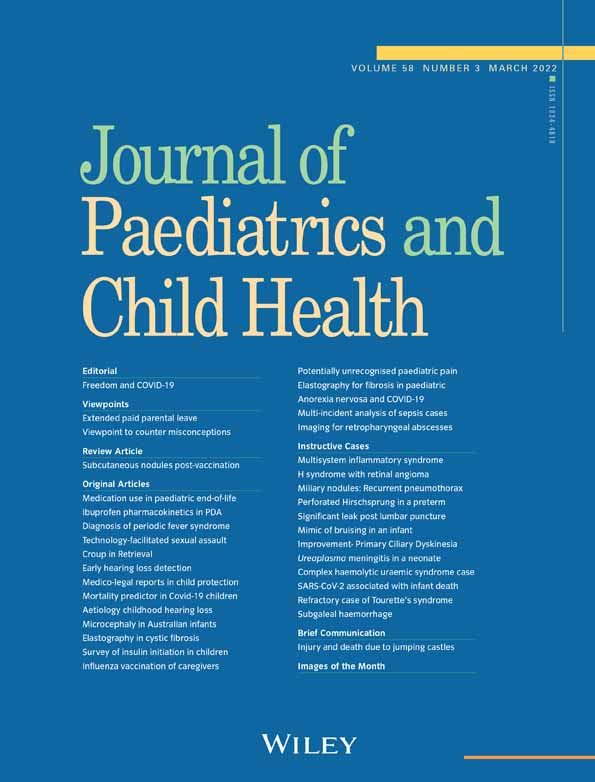Impact of the coronavirus pandemic on anorexia nervosa and atypical anorexia nervosa presentations to an Australian tertiary paediatric hospital
Conflict of interest: None declared.
Abstract
Aim
The coronavirus (COVID-19) pandemic has led to increased concerns about adolescent mental health. This study aimed to determine the effect of the pandemic on adolescent eating disorders (EDs) by measuring changes in the number and severity of presentations to an Australian paediatric ED service that utilises a standardised approach to triage and assessment.
Methods
A 4-year retrospective chart review (2017–2020) of all patients (n = 457) presenting to the Royal Children's Hospital Eating Disorder Service, Melbourne, was undertaken. The incidence of each diagnosis and measures of condition severity were extracted from the database and patient medical records. Clinical comments relating to the impact of COVID-19, on both ED behaviours and treatment, were also noted.
Results
Annual presentations increased from a mean of 98.7 per annum from 2017 to 2019 to 161 in 2020 (63% increase). COVID-19 restrictions were reported to be a trigger for ED behaviours in 40.4% of adolescents diagnosed with anorexia nervosa in 2020. There was no significant difference in severity across years despite increased cases.
Conclusions
The dramatic increase in presentations has implications for primary health and paediatric care as well as specialist ED services. Increased support is needed for EDs during this time.




